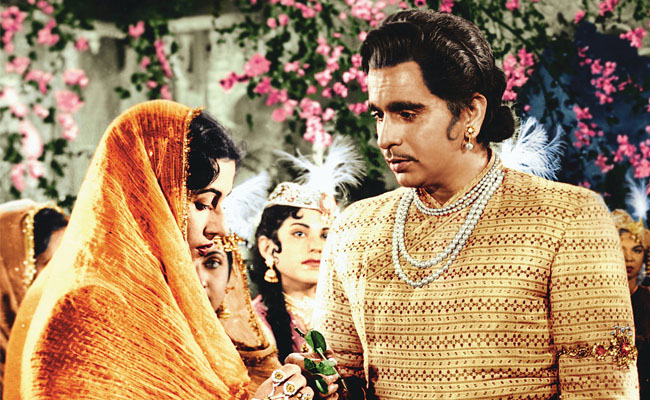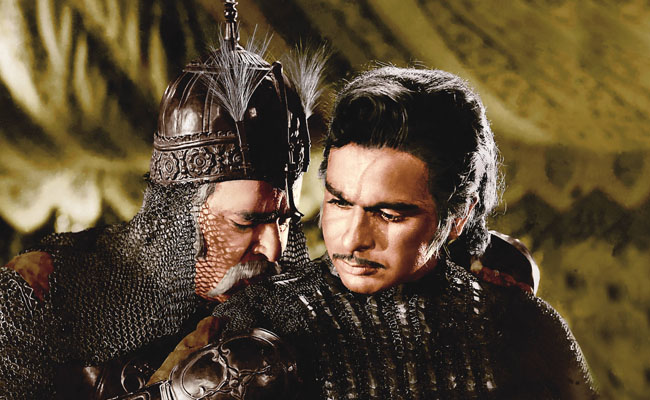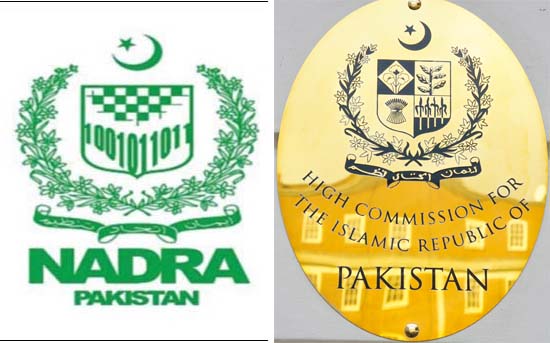Mughal-e-Azam marks 60th anniversary with screenplay marching into the Oscars library

Historical epic Mughal-e-Azam has become the first film from the golden age of Bollywood to have its screenplay admitted into the official Oscars library in Los Angeles. In another first, three versions of the legendary screenplay, in Hindi, Roman text and English translation, are now available at the world-renowned Margaret Herrick Library. Akbar Asif, son of late director K. Asif, presented the screenplays to the Academy Awards official library to mark the 60th anniversary of his father’s movie masterpiece, which falls in August 2020.
“The journey of Mughal-e-Azam started with words from the greatest writing team ever assembled in Hindi cinema and I thought the best way to honour them was to permanently preserve their screenplay in the world’s most renowned film library. I hope future generations can learn and get inspired by the work of my late father and his incredible team of writers. I want to humbly thank the Academy Awards for accepting the screenplay,” said Akbar Asif.

Aman, Kamal Amrohi, Wajahat Mirza, Ehsan Rizvi and director K. Asif wrote the pitch-perfect screenplay for what is regarded as the greatest Bollywood film of all time. Mughal-e-Azam broke every box office record when it released in August 5, 1960 and if inflation is taken into account is still the highest grossing Bollywood film of all time.
Mughal-e-Azam became the first full-length Indian feature film colourised for a theatrical re-release in 2004. For the hundredth anniversary of Indian cinema in 2013 Mughal-e-Azam was universally declared the greatest Bollywood film ever made and in 2016 an official live musical based on the film became the biggest theatre production ever staged anywhere in the world. Akbar Asif received an official message of thanks from the Oscars library, who said: “Thank you so much for your gift of the screenplays, which you kindly donated to the Academy Foundation for placement in the Margaret Herrick Library. Scripts are among the most frequently used items in our library, and your donation makes an especially welcome addition. Thank you for your support and contribution to our collection.”

Academy Award member and legendary actor Kabir Bedi thinks Mughal-e-Azam is a worthy addition to the prestigious library and said: ”K. Asif’s Mughal-e-Azam is a masterpiece of Indian cinema. As a member of the Academy for over 30 years, I’m delighted that its iconic screenplay is now in our prestigious library. Its Shakespearian plotting, its masterful scenes, its brilliant characters, and its powerful dialogue make it a one of the great scripts of all time.”
One of a very select group of Indians to ever win an Oscar, sound designer, editor and mixer Resul Pookutty said it was only befitting to preserve Mughal-e-Azam in a great institution like the Oscars library. “Mughal-e-Azam is the grandest Indian film ever made. It stems from the vision that director K. Asif had of life, history and culture of his motherland. He converted a legend into a glorious chapter of Indian history. He built a Mughal world around an impossible and intense love story. This world is wise, compassionate, yet harsh and full of conflict of values and duties. It’s a film where every element of its making comes together in perfection,” said Resul Pookutty.
The screenplay admission is one of many ways the 60th anniversary of Mughal-e-Azam is being marked in 2020, which includes the recent release of Daastan-e-Mughal-e-Azam, which is the most comprehensive book ever written on the historical epic and expertly authored in Hindi by acclaimed writer Rajkumar Keswani, which took 15 years to write. “I want thank all those who have been part of Mughal-e-Azam in the past 60 years, and I am happy the honourable Oscars library and brilliant writer Rajkumar Keswani have joined that journey. I am particularly appreciative of Mr Shapoorji Mistry and Mr Deepesh Salgia for uplifting my father’s magnificent film and contributing to keeping the legacy alive,” said Akbar Asif.





